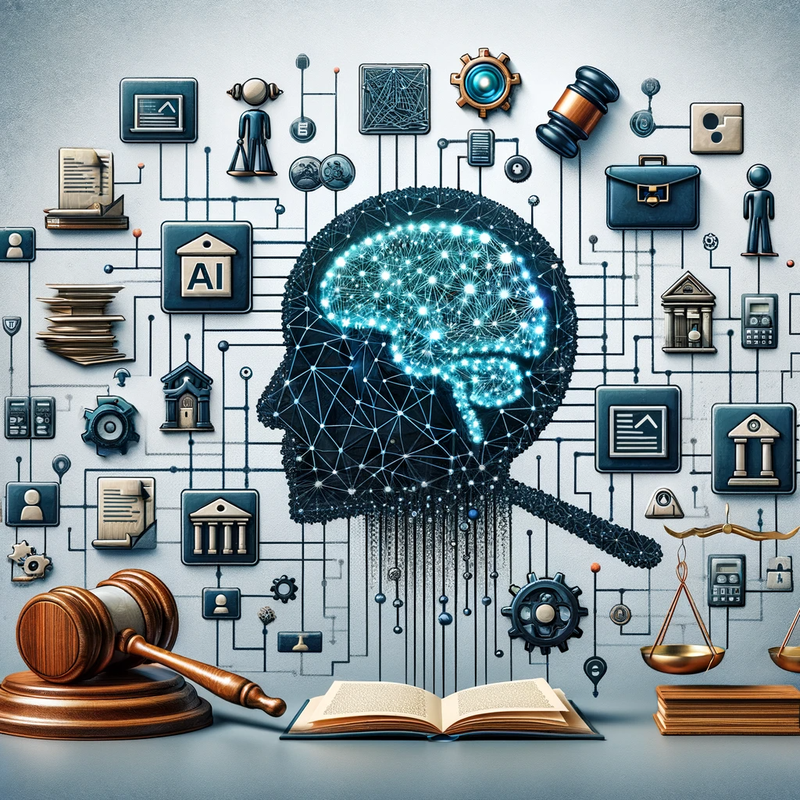How AI is Revolutionizing Real Estate Marketing Strategies
The landscape of real estate marketing is shifting at an unprecedented pace, and much of this change is driven by advancements in artificial intelligence (AI). From chatbots managing customer interactions to algorithms that predict property values, AI has made inroads into virtually every aspect of the real estate industry. Not only has this technology made processes more efficient, but it's also opened up new avenues for customer engagement and revenue growth.
Traditionally, real estate marketing relied heavily on relationships, word-of-mouth, and perhaps a sprinkling of print advertising. While these elements are still essential, they are now part of a broader, more sophisticated strategy where AI plays a pivotal role.
Enhanced Customer Experience Through Chatbots

One of the first touchpoints for customers looking to buy or rent a property is often the real estate company's website or app. Chatbots powered by AI algorithms can interact with customers in real time, answering questions, providing information, and even setting up appointments with human agents. The intelligent bots are capable of natural language processing, which enables them to understand context and offer relevant solutions. This improves the customer experience and frees up human resources for more complex tasks that require emotional intelligence and nuanced understanding.
Predictive Analytics for Property Valuation
Predictive analytics have long been employed in various sectors to forecast trends and outcomes, but AI has taken this to a new level in real estate. Algorithms analyze many variables—location, property size, and community features—to predict property values. This information can be incredibly helpful for both buyers and sellers. For example, sellers can get a realistic sense of what their property could fetch in the current market, while buyers can know if a listing is overpriced or a bargain. For marketers, understanding property valuation can help segment the market and target potential customers more effectively.
Virtual Tours and Augmented Reality

While photographs and descriptions can give potential buyers or renters an idea of what a property is like, nothing beats experiencing it. However, it’s not always workable for prospects to visit every property they want. Enter virtual tours powered by AI. These are not rudimentary 360-degree photographs; we're talking about intelligent, interactive experiences that allow users to walk through a property virtually. Some even offer augmented reality features where potential buyers can see how their furniture would fit into the spaces. For real estate marketers, this technology makes their listings more attractive and allows them to collect data on user interactions to refine future marketing strategies.
Personalization and Recommendation Systems
AI algorithms can analyze user behaviour, preferences, and interaction with a website or app to offer personalized recommendations. Much like how Netflix suggests shows you might like, AI can recommend properties that meet the specific needs and interests of the individual user. This improves user engagement and increases the likelihood of conversion, as prospects are presented with options that closely align with their requirements.
Social Media Automation and Analysis
In today’s digital age, social media is an indispensable tool for marketing. AI can automate many repetitive tasks in maintaining an active online presence, from posting updates to interacting with followers. But where it shines is in the analysis of user engagement. Through machine learning algorithms, AI can identify patterns, trends, and even sentiment within user comments and reactions. This data can be invaluable for marketers to refine their strategies and make data-driven decisions.
Optimizing Ad Campaigns
Running multiple advertising campaigns across various platforms can be a daunting task. AI algorithms can analyze the performance of ads in real-time, adjusting bidding strategies and reallocating budgets to ensure the highest return on investment. Machine learning models can also predict the performance of future campaigns based on historical data, helping make more informed decisions.
Lease Management and Document Automation
While not strictly a marketing function, efficient lease management and document handling can leave a lasting impression on clients, encouraging referrals and repeat business. AI can automate much of this paperwork, filling in details in lease agreements, running background checks on potential tenants, and even flagging any clauses that could be problematic. This frees agents to focus on relationship-building and customer service, ultimately the cornerstones of any successful real estate business.
Regulatory Compliance and Risk Assessment

Navigating the intricate web of real estate laws and regulations is another area where AI can be indispensable. Compliance algorithms can flag potential issues before they become problematic, saving companies from costly fines and legal battles. Risk assessment algorithms can analyze market conditions, customer creditworthiness, and other variables to minimize financial risks.
In conclusion, artificial intelligence is radically transforming the real estate marketing landscape. From enhancing customer experience to making data-driven decisions, AI makes operations more efficient and effective. As the technology continues to evolve, we can expect even more groundbreaking applications to revolutionize the industry further. Embracing these AI-driven tools and strategies is no longer optional for real estate firms that aim to stay competitive in this rapidly changing market.
Our Services
View some of our most popular services below.











